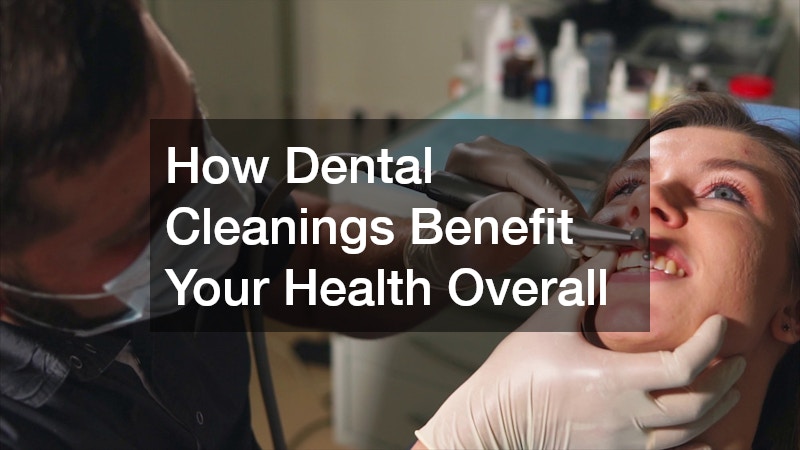
How Dental Cleanings Benefit Your Health Overall
Regular dental cleanings do much more than keep your smile bright; they play an essential role in your overall health. By preventing oral issues and identifying potential problems early, routine cleanings support both your dental and general well-being.
Benefits of Regular Dental Cleanings
Routine dental cleanings are key to preserving healthy teeth and gums. They prevent cavities by removing plaque buildup that brushing and flossing can miss.
Cleanings also reduce the risk of gum disease, which can lead to tooth loss and other complications if left untreated.
Beyond prevention, professional cleanings help ensure complete oral health by allowing your dentist to detect issues early, such as decay, infection, or oral cancer. They also leave your mouth feeling fresh, improve your smile’s appearance, and help eliminate persistent bad breath caused by bacteria.
How Often You Should Get a Dental Cleaning
Most dental professionals recommend visiting your dentist for a cleaning every six months. However, the ideal frequency depends on factors such as oral hygiene habits, diet, genetics, and existing dental issues.
Children, adults, and seniors each have unique oral health needs. For instance, children may need more frequent visits during growth periods, while older adults might require extra care for gum or bone health. Those with chronic conditions like diabetes or gum disease may also need more regular cleanings. It’s always best to follow your dentist’s personalized recommendations to maintain optimal oral health.
What Happens During a Dental Cleaning
A dental cleaning begins with an initial examination to assess your teeth, gums, and mouth. X-rays may be taken to detect hidden issues such as cavities or bone loss. Next, plaque and tartar are carefully removed using special instruments, focusing on areas that are difficult to reach at home.
Once the teeth are clean, polishing removes surface stains and smooths enamel, followed by an optional fluoride treatment to strengthen teeth and protect against decay. Afterward, your dentist will provide tailored advice on brushing, flossing, and overall care to keep your mouth healthy until your next visit.
How Dental Cleanings Contribute to Overall Health
There is a powerful connection between oral health and the rest of the body. Bacteria from the mouth can enter the bloodstream and contribute to conditions such as heart disease and stroke. Regular dental cleanings reduce this bacterial load, helping protect cardiovascular health.
Healthy gums also play a role in managing blood sugar, making dental care especially important for people with diabetes. Cleanings can lower inflammation throughout the body and even support respiratory health by preventing harmful bacteria from traveling to the lungs. Maintaining good oral hygiene can also strengthen the immune system, helping the body resist infection more effectively.
Many patients worry about discomfort, but modern dental cleanings are designed to be gentle and stress-free. Dentists and hygienists use advanced techniques and tools that minimize irritation and sensitivity.
For those with sensitive gums or teeth, mild discomfort can be eased with topical numbing gels or other pain relief options. Communication is key; let your dental team know if you experience anxiety or discomfort, as they can make adjustments to ensure a more relaxing experience. Regular cleanings also tend to become more comfortable over time as your oral health improves.
The Importance of Regular Dental Cleanings
Consistent dental visits are an investment in both your oral and overall health. By preventing disease, detecting problems early, and supporting systemic well-being, dental cleanings serve as a simple yet powerful step toward a healthier life. Taking the time to care for your teeth today can have lasting benefits for your body tomorrow.


